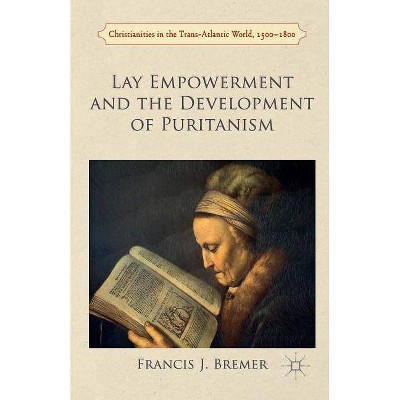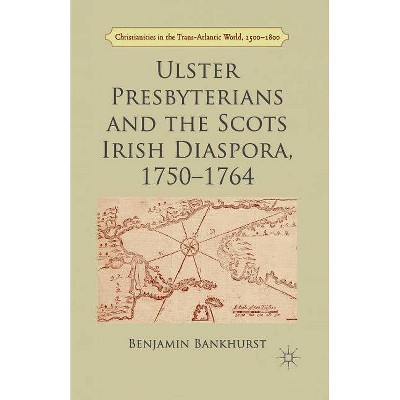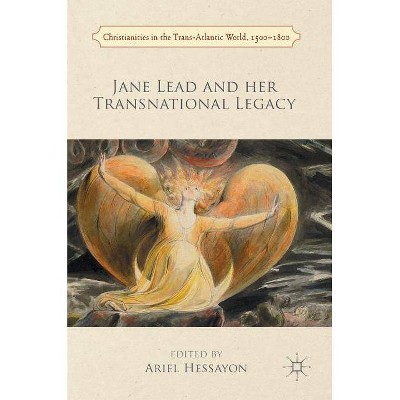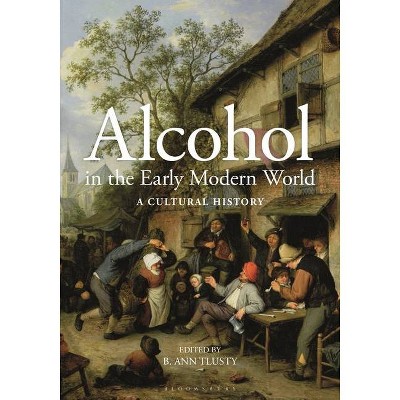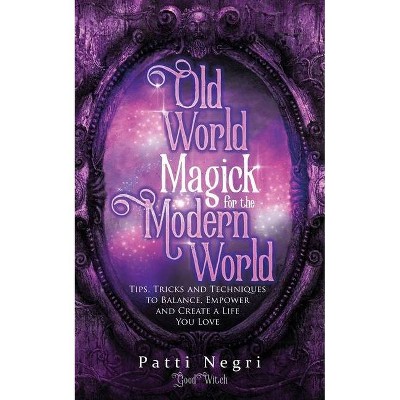Puritanism and Emotion in the Early Modern World - (Christianities in the Trans-Atlantic World) by A Ryrie & Tom Schwanda (Paperback)
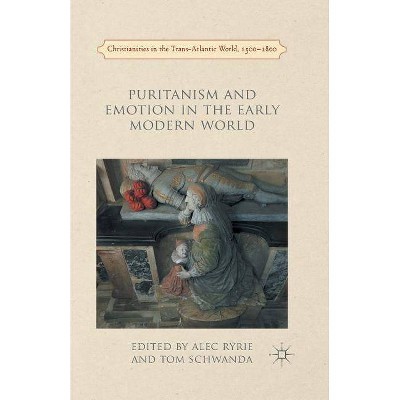
Similar Products
Products of same category from the store
AllProduct info
<p/><br></br><p><b> About the Book </b></p></br></br>"The stereotype of the emotionless or gloomy Puritan is still with us, but this book's purpose is not merely to demonstrate that it is false. The reason to look at seventeenth-century English and American Puritans' understanding and experience of joy, happiness, assurance, and affliction is to show how important the emotions were for Puritan culture, from leading figures such as Richard Baxter and John Bunyan through to more obscure diarists and letter-writers. Rejecting the modern opposition between 'head' and 'heart', these men and women believed that a rational religion was also a deeply-felt one, and that contemplative practices and other spiritual duties could produce transporting joy which was understood as a Christian's birthright. The emotional experiences which they expected from their faith, and the ones they actually encountered, constituted much of its power. Theologians, historians and literary scholars here combine to bring the study of Puritanism together with the new vogue for the history of the emotions"--<p/><br></br><p><b> Book Synopsis </b></p></br></br><p>Puritanism has a reputation for being emotionally dry, but seventeenth-century Puritans did not only have rich and complex emotional lives, they also found meaning in and drew spiritual strength from emotion. From theology to lived experience and from joy to affliction, this volume surveys the wealth and depth of the Puritans' passions.</p><p/><br></br><p><b> From the Back Cover </b></p></br></br>The stereotype of the emotionless or gloomy Puritan is still with us, but this book's purpose is not merely to demonstrate that it is false. The reason to look at seventeenth-century English and American Puritans' understanding and experience of joy, happiness, assurance, and affliction is to show how important the emotions were for Puritan culture, from leading figures such as Richard Baxter and John Bunyan through to more obscure diarists and letter-writers. Rejecting the modern opposition between 'head' and 'heart', these men and women believed that a rational religion was also a deeply-felt one, and that contemplative practices and other spiritual duties could produce transporting joy which was understood as a Christian's birthright. The emotional experiences which they expected from their faith, and the ones they actually encountered, constituted much of its power. Theologians, historians and literary scholars here combine to bring the study of Puritanism together with the new vogue for the history of the emotions.<p/><br></br><p><b> Review Quotes </b></p></br></br><br>"The diversity seen in figures, subject matter, and context also extends to sources, which include treatises, casuistries, sermons, letters, journals, and poems. Those working with rare books will be pleasantly surprised by tidbits on writing, publishing, and translating practices. ... it should be read critically, with a sensitivity to possible future developments." (Jenny-Lyn de Klerk, Evangelical Quarterly, Vol. 89 (4), 2018)<br><p/><br></br><p><b> About the Author </b></p></br></br><p>Alec Ryrie is Professor of the History of Christianity at Durham University, UK, and author of books including The Age of Reformation (2009) and Being Protestant in Reformation Britain (2013). <p/>Tom Schwanda is Associate Professor of Christian Formation and Ministry at Wheaton College, USA. His books include Soul Recreation: The Contemplative-Mystical Piety of Puritanism (2012) and The Emergence of Evangelical Spirituality In the Age of Edwards, Newton and Whitefield (2015).<br></p>
Price History
Price Archive shows prices from various stores, lets you see history and find the cheapest. There is no actual sale on the website. For all support, inquiry and suggestion messages communication@pricearchive.us
